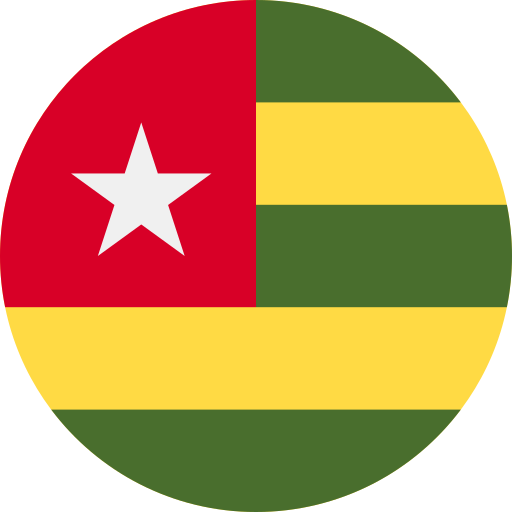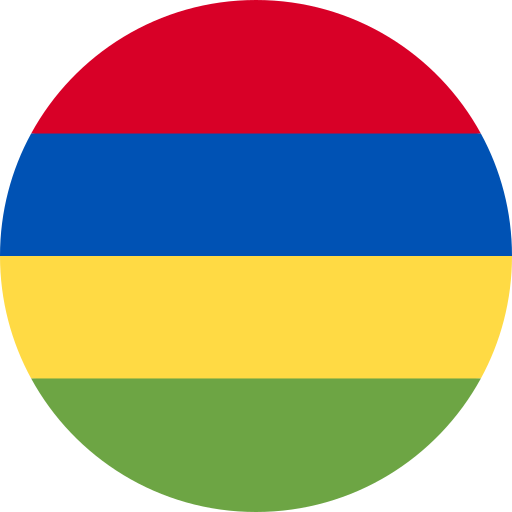
Expert Regulatory Services for
African and Asian
Pharmaceutical & Nutraceutical Markets
Exporting to Africa or Southeast Asia shouldn’t feel like navigating a maze. That’s where The Apostrophe steps in.
We’re not just a regulatory service provider — we’re your compliance partner. With a laser focus on pharmaceutical and nutraceutical exports, we help Indian manufacturers break into high-potential but highly regulated markets with clarity, speed, and accuracy.
Our clients choose us because we know the regions, understand the paperwork, speak the language of regulators, and deliver results. From market mapping and dossier support to handling last-minute queries and audit prep — we simplify every step.
Because when your compliance is clear, your growth is unstoppable.
Why Choose The Apostrophe?
We’re more than a service provider — we’re your export compliance partner.
Africa & ASEAN Focused
We specialize exclusively in regulatory requirements for African and Southeast Asian markets — so you benefit from deep regional insights and faster approvals.
End-to-End Regulatory Support
From market mapping and regulatory strategy to CTD/ACTD dossier preparation, artwork compliance, and support audit readiness — we handle everything.
Zero-Lag Communication
We know your timelines matter. Our responsive, experienced team ensures clear, fast updates at every stage.
Nutra + Pharma Expertise
Whether it’s a herbal supplement or a prescription drug, we bring hands-on experience with diverse formulations and MOH-specific expectations.
Built for Indian Manufacturers
We understand the gaps and challenges faced by small and mid-sized Indian companies — and tailor our process to make global expansion achievable.
Result-Oriented Approach
We simplify documentation, reduce deficiencies, and help get your products market-ready — without the regulatory runaround.
Our Approach
Structured Phases. Seamless Compliance.
We simplify your global journey through clear, accountable phases — so you’re never lost in paperwork or regulatory chaos.
Phase 1: Regulatory Strategy & Market Mapping
We assess your product, identify viable markets, and map out a country-specific compliance strategy tailored to local MOH expectations.
Phase 2: Dossier Compilation (CTD/ACTD/API/DMF)
We compile, structure, and format the complete set of documents — including product data, APIs, and technical literature — based on your product type and target country.
Phase 3: Artwork, Labels & Translations
We align your artwork, packaging inserts, and labels with country-specific rules — including translations (Arabic, French, etc.) and visual compliance checks.
Phase 4: Query Handling
We support you in responding to regulatory queries with zero-stress documentation and coordination
Our Services
At TheApostrophe, we help Indian pharmaceutical and nutraceutical companies export confidently to Africa and Southeast Asia with end-to-end regulatory support.

CTD/ACTD dossier preparation

API documentation & DMF coordination

Label, artwork & translation compliance

Deficiency handling
Add-ons
Artwork design
eCTD & translation tools
Local distributor coordination
Countries We Serve

Uganda

Kenya

Tanzania

Benin

Senegal

Togo

Myanmar

Cambodia

Sri Lanka

Nepal

Mauritius

Malaysia
Explore Our Thoughts
Blog
Are You Still Only Selling Domestically?
Why Indian Nutra & Pharma Brands Shouldn’t Ignore Africa & ASEAN India’s domestic Pharmaceutical and Nutraceutical markets are thriving — but they’re also increasingly saturated. With intense competition, limited shelf space, and pricing pressures, many Indian companies are reaching a growth plateau at home. Meanwhile, across Africa and Southeast Asia, the demand for quality, affordable health products is rising rapidly. The good news? These regions welcome Indian products — especially when backed by compliant documentation. So, if your company is still focused only on local sales, you might be missing out on some of the most promising markets of the next decade. Why Africa & ASEAN? Here’s why these regions matter right now: Fast-growing middle-class populations Rising awareness of preventive healthcare and herbal alternatives Limited local manufacturing in several countries Active government interest in regulated imports Most importantly, countries like Kenya, Tanzania, Cambodia, Myanmar, Uganda, and others are actively seeking trusted suppliers — but only those who are regulatory-ready. What Do You Need to Enter? Contrary to popular belief, exporting your Pharma or Nutra product doesn’t start with finding a buyer — it starts with getting your regulatory documents right. Here are the 4 non-negotiables for successful market entry: Requirement Purpose ✅ ACTD or CTD Dossier Structured format required by most African and ASEAN regulators ✅ Label & Artwork Compliance Country-specific health claims, languages, and pack insert norms ✅ Local Agent A representative registered in the destination country for submission and communication ✅ Supporting Evidence Valid GMP, CoPP, CoA, stability data, and ingredient justifications where needed Common Mistakes to Avoid Many companies fail not because their product isn’t good — but because their dossier isn’t ready. Here’s what to watch out for: Submitting CTD instead of ACTD or vice versa Making unapproved health claims on your label Ignoring the need for a notarized local agent appointment Sending expired or incomplete GMP/CoPP documents Copy-pasting older dossiers without country-specific customization How TheApostrophe Helps At TheApostrophe, we specialize in regulatory consulting for African and ASEAN markets, with services including: ACTD/CTD dossier preparation Label and artwork compliance Local agent coordination Query and deficiency response Post-approval maintenance Whether you’re just exploring exports or preparing your first filing, we help you navigate each step with precision — no guesswork, no surprises. Conclusion If your product is performing well in India, it may be time to think globally. Africa and ASEAN aren't just emerging markets — they are strategic markets with untapped potential for Indian manufacturers. And the best part? You don’t need a global team or massive investment to get started — just the right compliance partner and a clear regulatory roadmap. Let’s Get You Export-Ready.
Read MoreJune 14, 2025
Blog
A Day in the Life of a Dossier
Ever wondered what happens to your product file after you finally submit it? It doesn’t go straight to approval — instead, it embarks on a multi-step journey through regulatory desks, technical reviews, and hidden bottlenecks. This is the real story of your dossier in motion — and why many approvals stall before they even start. Step 1: The Desk Review The journey begins with a regulatory assistant, who checks the submission for formatting, completeness, and required documents.Common pitfalls: Missing forms Mismatched module labels Unsigned declarations Even minor oversights can trigger immediate rejection — before a single technical review is done. Step 2: Technical Review by Specialists If it passes the desk, the dossier moves to subject-matter experts for deeper technical assessment. This includes API data, formulation consistency, stability studies, and label compliance.What’s often overlooked?Generic, copy-pasted dossiers.Especially in countries like Nepal, dossiers must reflect local nuances — or face immediate rejection. Step 3: The Query Queue Your file might pause here. Why?Because errors or inconsistencies throw it into a deficiency cycle. Common delays include: Mismatched manufacturer names Missing legalizations Inadequate shelf-life justification Step 4: Regulatory Committee Review In markets like Uganda, where the NDA committee meets just once a month, even a tiny mistake can mean waiting until the next review cycle.One slip = One month lost.And every delay adds cost and uncertainty to your export timeline. Step 5: Hidden Traps Even a “perfect” dossier can be stalled by small administrative issues: Missing courier label code (Nepal) Unacknowledged payment receipt (Uganda) You did everything right, but your file still doesn’t move. Why? Because execution matters as much as content. Final Step: Don’t Let It Turn Into a 9-Month Nightmare Your dossier is more than paperwork — it’s your product’s passport.A flawless submission isn’t just desirable; it’s essential. Before you send your file off to regulatory agencies, let an expert pair of eyes review it. Want a second opinion before submission?We offer quick, expert reviews tailored to African and ASEAN markets.Send your file or schedule a call today.
Read MoreJune 7, 2025
Blog
“Why Africa Is the Best Place to Start Your Pharma or Nutra Export Journey”
If you're a Pharmaceutical or Nutraceutical manufacturer in India thinking of entering international markets, you're probably overwhelmed by the options: the US, Europe, Japan, Russia etc. But if you're looking for the best mix of opportunity, speed, and affordability, there’s one clear answer:Start with Africa. Here’s why: High Demand Meets Low Local Supply Many African countries rely heavily on imports for essential medicines, generics, and supplements. Indian-made products are: Affordable Trusted Already proven in similar climate zones Whether it’s paracetamol, herbal immune boosters, or iron supplements, demand is steady and growing — especially post- COVID. Regulatory Pathways Are Clear & Achievable Compared to regulated markets: African countries accept WHO-GMP and ACTD/CTD-lite formats You don’t need to run clinical trials Local agents help file and follow-up, making the process smoother Most approvals take 6–9 months — much faster than the 18–36 months typical in the US or EU. First-Mover Advantage in Emerging Niches In many African nations, categories like: Herbal supplements Wound care Pediatric syrupsare underrepresented. Entering early means you can build brand loyalty, attract distributors, and lock in long-term market share before global giants step in. English & French Markets Offer Broad Reach Africa offers two built-in market clusters: English-speaking East Africa: Kenya, Uganda, Tanzania French-speaking West Africa: Senegal, Benin, Togo With smart label planning and strategic dossier formatting, one product can scale across 5–10 countries. Cost-Effective Entry for SMEs Exporting to Africa doesn’t require: A massive regulatory team Expensive legal fees Clinical trials or custom manufacturing What you do need: A clean dossier Local representation A partner who understands the regulatory landscape That’s where TheApostrophe comes in. Final Thought If you’ve already won the domestic game and are ready for international growth, Africa is your low-risk, high-return launchpad. It’s where you can learn global processes, prove your export-readiness, and build distribution relationships — all without the regulatory barriers of the West. Ready to go global? Start with Africa.
Read MoreMay 21, 2025
Blog
Nutraceuticals in ASEAN: A Sleeping Giant?
When we talk about fast-growing health markets, eyes usually turn to the West. But quietly and steadily, Southeast Asia (ASEAN) is shaping up to be a nutraceutical powerhouse — and Indian manufacturers may be perfectly positioned to meet the demand. Is ASEAN the “sleeping giant” the nutra world has overlooked? Let’s take a closer look. The Rise of Health-Conscious Consumers From urban Malaysia to rural Cambodia, health awareness is surging — driven by post-COVID immunity concerns, lifestyle diseases, and an aging population. ASEAN consumers are: Turning to herbal and traditional supplements Seeking preventive health products Preferring plant-based, non-invasive solutions In countries like Myanmar and Cambodia, local remedies are being rebranded and supplemented with imported science-backed formulations. It’s the perfect environment for evidence-based Ayurveda, herbal blends, and wellness formulations. Market Snapshot Malaysia: One of the most structured markets; high demand for immunity, digestive, and beauty-focused supplements Vietnam: Rapidly growing e-commerce-driven nutra sector Cambodia & Myanmar: Early-stage regulation = first-mover advantage Indonesia & Philippines: Huge population base + emerging regulatory clarity Estimates suggest the ASEAN nutra market could cross $9–10 billion in value by 2030. The Regulatory Picture: More Complex Than It Looks The challenge? Regulatory compliance. ASEAN countries may be grouped economically, but not all follow the same rules. Country Nutra Regulator Format Key Challenges Malaysia NPRA Semi-CTD GMP, label vetting, evidence required Myanmar FDA Myanmar ACTD Local agent, frequent updates Cambodia MoH Cambodia Simplified Ambiguous categories, slow processing Vietnam DAV CTD-like High bar for scientific substantiation Philippines FDA Philippines Online Portal Label compliance, import licensing If your labels overclaim, if your clinical references are weak, or if you skip local agent documentation, you risk delays or rejections. What Indian Companies Must Do To unlock ASEAN’s nutra potential, here’s what manufacturers must get right: Prepare for hybrid dossier formats Most ASEAN nations don’t follow a textbook CTD. You’ll need custom formats with justifications for each ingredient. Get your label and claims vetted early Claims like “cures,” “boosts immunity,” or “zero side effects” can result in outright rejection. Work with a country-specific agent A local rep isn’t optional — it’s mandatory for legal, correspondence, and license purposes. Be ready for evidence More countries now ask for published studies, clinical data, or substantiation of functional ingredients — even for herbal products. The First Mover Advantage The great news? In many ASEAN markets, Indian nutra products are welcome — both for their herbal heritage and competitive pricing. With relatively lower regulatory entry barriers compared to the West and rising consumer trust in Indian-origin formulations, ASEAN offers a rare blend of growth + accessibility. Final Word ASEAN isn’t just an opportunity — it’s a region on the cusp of transformation. Indian nutraceutical exporters who invest in compliance, country-specific dossier planning, and proper regulatory navigation stand to win early — and big. Your product might just be ASEAN’s next big thing. #Nutraceuticals #ASEANMarkets #HerbalSupplements #ExportReady #RegulatoryAffairs #PurvaShah #CTD #ACTD #NutraCompliance #IndiaToASEAN #MalaysiaNutra #CambodiaHerbal #MyanmarMarkets
Read MoreMay 8, 2025